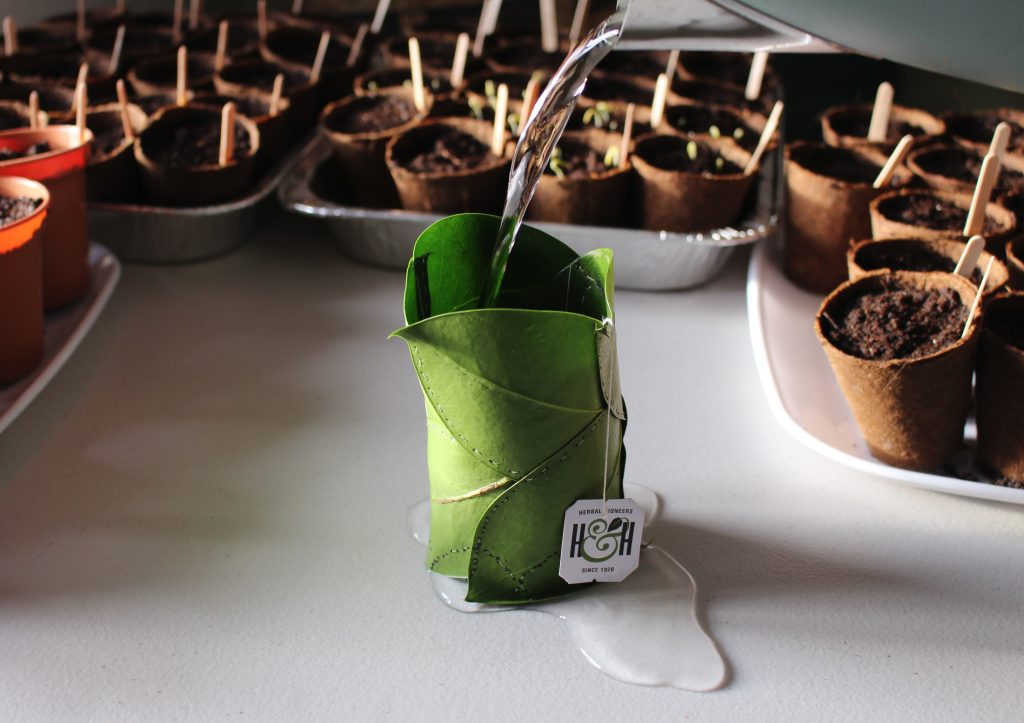
I was intrigued by the Images of Research competition, so I attended a Graduate School Coffee Chat to find out more, and I am so glad I did. I realised that this competition was going to be a fantastic opportunity for many reasons – connecting with peers, practising my writing, and showcasing my work – being just some of those reasons!
As someone who specialises in material design, I would say that I am naturally a visual and hands-on learner. I am currently in the second year of a full-time practice-based PhD, and during my first year I often felt a little out of place. Other people’s PhD studies were considerably more word and theory based, so I felt out of my depth at times and disconnected from other postgraduate researchers. Images, however, I connect to! Images can provide a visual language like no other, and they are key to how I communicate my research to others. But the fundamental core to this competition was the delivery of impact, so I began to consider how I could create a compelling narrative within my abstract and image which would speak to a wider audience.
I really enjoyed the process of taking my image. To inspire curiosity, I played with a humorous approach for illustrating the issues in my research, in rather a blatant way. Why would anyone pour water into a leaf cup? Synthetic materials like plastics are very useful, mainly due to two properties in particular – their durability and their waterproofness. However, these properties are also the cause of the increasing plastic pollution that is damaging our soils and waters. My research is investigating whether these same properties could be improved in bio-based materials, to help the current environmental situation.
Writing an abstract for an unfamiliar audience was fantastic training. To develop a short overview that touches on the gritty core of your research (whilst still making sense!) requires skill – and this is exactly why you should enter the competition. It allows you to practise and develop this skill; a skill which is vital for your PhD and any future research. Knowing that your image and abstract are going to be seen by members of the public, other researchers, and a panel of academic judges brings pressure, yes, but this pressure instigates energy to deliver a cohesive and influential story. It took me time to find the right words, but it was very satisfying when I found them.
The competition also provided the opportunity of raising my personal profile as a developing researcher online, helping to generate new awareness of my research in bio-based materials. This in turn gave me access to develop my network with my peers and professional researchers. I had some very fruitful conversations after the competition, none of which would have happened without Images of Research acting as a facilitator for this positive knowledge exchange. All of this gave me confidence and affirmation that my research was moving in the right direction.
As for the awards themselves, I was astounded at the result. I wasn’t expecting to win anything at all, and I was just happy to have experienced all the other benefits along the journey. But of course, if you haven’t already been convinced to enter the competition, the prizes up for grabs are very nice indeed. I really appreciated the financial boost; I was able to buy materials and books for developing my research, but most importantly I bought a laptop stand for working from home – my best investment to date!
I want to thank the Images of Research team again for running this competition each year, and to say to anyone thinking about entering – do it! You won’t regret it!

Hannah won both the Images of Research 2021 Judges’ Choice (PGR) and People’s Choice categories. Images of Research 2022 is now open for submissions. You can find out more on our webpage: https://www.mmu.ac.uk/research/research-study/events/images/, including viewing all of last year’s images and submitting yours for the 2022 competition!


